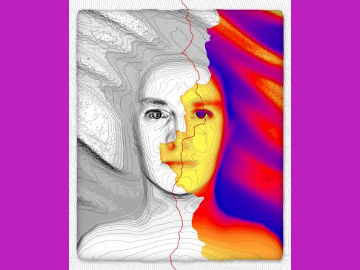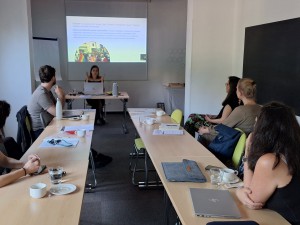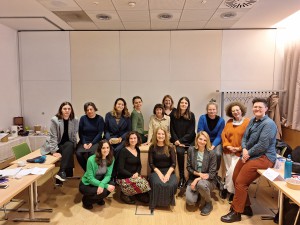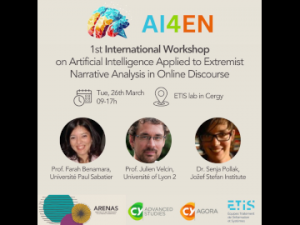‘Transationalisms’ Conference
19. 4. 2018 | Human Rights and Minorities, Politics

Transnationalisms is the title of the exhibition and the conference curated by James Bridle in production of Aksioma, Institute for Contemporary Art, opening on Tuesday, April 24. The conference will take place in Kino Šiška, on the 24th and 25th of April, starting on the 24th at 5. p.m. Conference participants include Mojca Pajnik whose lecture is entitled Reclaiming Humanity: The utopias of world citizenship. Welcome!
From the project: “We live in a time of stark and often violent paradoxes: the increasing liberalisation of social values in some parts of the world compared to increasing fundamentalism in others; the wealth of scientific discovery and technological advances in contrast to climate denialism, “post-factual” and conspiracy-driven politics; freedom of movement for goods and finance while individual movement is ever more constricted and subject to law; a drive towards agency, legibility and transparency of process while automation, computerisation and digitisation, render more of the world opaque and remote. At every level, mass movement of peoples and the rise of planetary-scale computation is changing the way we think and understand questions of geography, politics, and national identity. These ever-increasing contradictions are seen most acutely at the border. …”
Lecture outline
Mojca Pajnik, Reclaiming Humanity: The utopias of world citizenship
The de facto transnationalization of living in contemporary global societies, exemplified in the cases of migrations and proliferation of media poses several challenges for contemporary societies embedded in conceptions of primordial ethnos, national identity and culture. Bounding citizenship by prioritizing western nation-state membership and economic imperatives has been reproducing second-class citizenships, aggressively so through the last few decades. Inhumanity of managing migration by reintroducing border regimes and prioritizing fake security has robbed millions of individuals of their humanity, simultaneously feeding the populist rage over migrants’ “impossibility to integrate”. World citizenship, grasping citizenship in a perspective wider than the classical scheme of nationality-centred project, we will argue, should assume an interplay of institutional policy with non-institutional practices of various subjectivities, constituting the public. Reclaiming humanity against “the globalization of indifference” requires a utopian invention of “worldliness of people” that stands for a political project of equality, rather than the moral project of defence of traditions.





